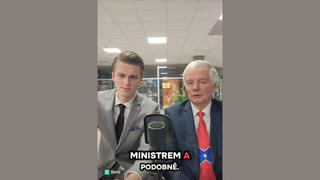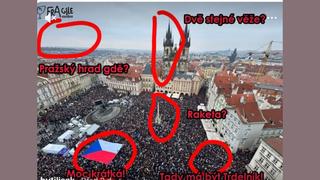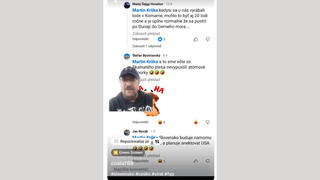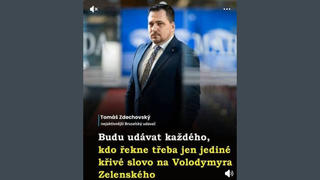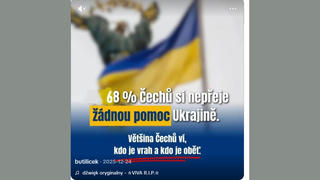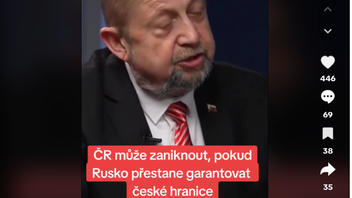
Does the Czech Republic rely on Russia to safeguard its borders, preventing potential territorial losses to Germany and ensuring its existence? No, that's not true. The borders of the Czech Republic are established through bilateral international agreements with neighboring countries, including Germany, national laws and in the constitution. Russia, not being a neighboring country to the Czech Republic, is not involved in this process.
The story appeared in a video (archived here) where it was published on TikTok on March 3, 2024. It features Stefan Harabin, a Slovak retired judge and a politician, one of the candidates who failed to get to the second round of the presidential vote in Slovakia in March 2024. The video has captions in Czech translated by Lead Stories staff as the Czech Republic "may cease to exist if Russia stops guaranteeing its borders" and "is Sudeten land really Czech". Harabin says in Slovak translated by Lead Stories as:
Even now it is being said at the level of state authorities in the Russian Federation whether the Sudetenland is Czech.... The Russians are saying only that if they stop guaranteeing the Czech state borders and after that, when a referendum is made in the Sudetenland, the Sudetenland will be for annexation to Germany. 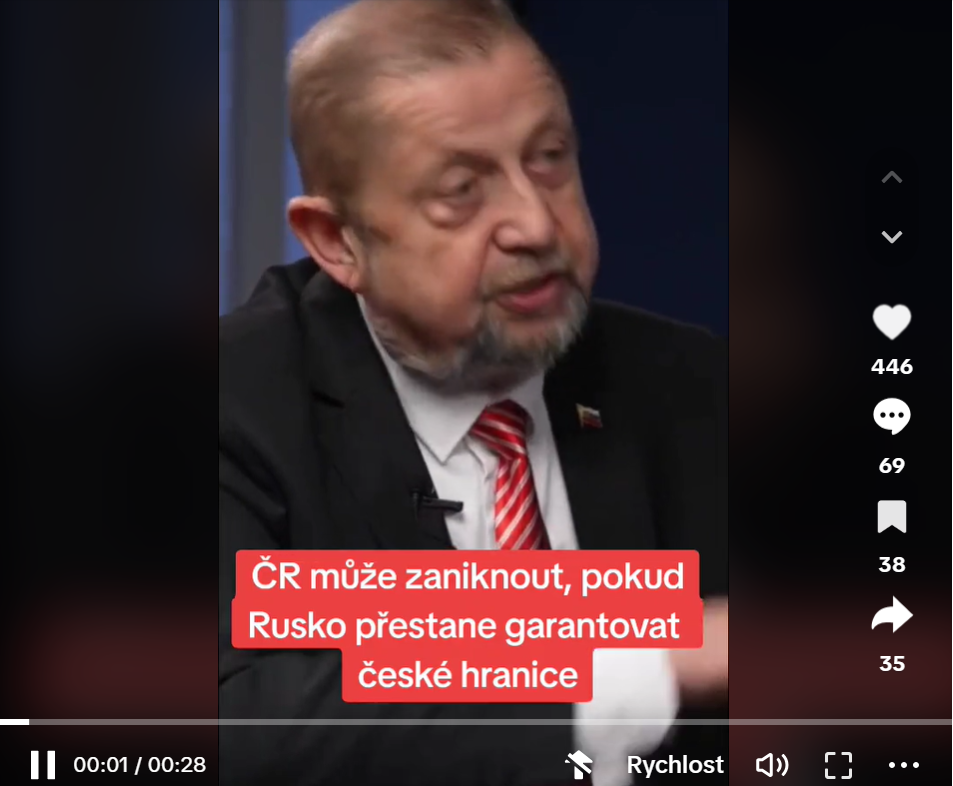
(Source: TikTok screenshot taken on Wed March 27 07:22:23 2024 UTC)
Stefan Harabin is a controversial Slovak politician (archived here), openly approving of Russia, who ran as a presidential candidate in Slovakia's 2024 election, but did not make it to the second round (archived here). Harabin is also on trial in Slovakia (archived here) for allegedly endorsing Putin's invasion of Ukraine in a social media post. Harabin has also accused the Czech Republic of "supporting Hitler supporters and fascists" and said before the presidential vote took place, that as the Slovak president, he would choose Moscow over Prague for his official first foreign trip, iDnes reported (archived here).
Harabin's claims in the video above are unsubstantiated. Today, the Czech state borders are established by the Czech Constitution (archived here), laws, as well as by bilateral international agreements between neighboring countries and Russia is not involved in any of it. Unlike during the Cold War, when Czechoslovakia and part of Germany were under Soviet influence, today Russia has no leverage to interfere in the states' affairs. The Czech Republic signed an agreement with Germany on the common state borders in 1997 (archived here) so there is no need for a guarantee of that border by Russia.
Sudetenland (archived here), which Harabin also refers to in the video, is the name given to the huge chunk of then-Czechoslovakia's borderland with Nazi Austria and Germany that was annexed by the Nazis with the approval of Western European countries after a Munich Agreement was signed in 1938. Most of the German nationals who historically lived in the area were expelled from the country after World War II, and there is no large German speaking minority in the Czech Republic these days (archived here). Since there is no German minority in the Sudetenland, Harabin's suggestion that a potential referendum that would lead to the territory's annexation to Germany makes no sense.
In 1992, after the fall of the Iron Curtain, the former Czechoslovak Federal Republic and Germany also signed an Agreement on Good Neighborliness and Friendly Cooperation, in which Germany officially revoked its claims stated in the Munich Agreement (archived here).
In past some western politicians, including former German Finance Minister Wolfgang Schauble, compared annexation of Sudeten land in 1938 to Russian anexation of Crimea, which upset Russian officials (archived here).
A similar claim by Harabin about the Czech borders and Russia have already been debunked by Lead Stories here.



